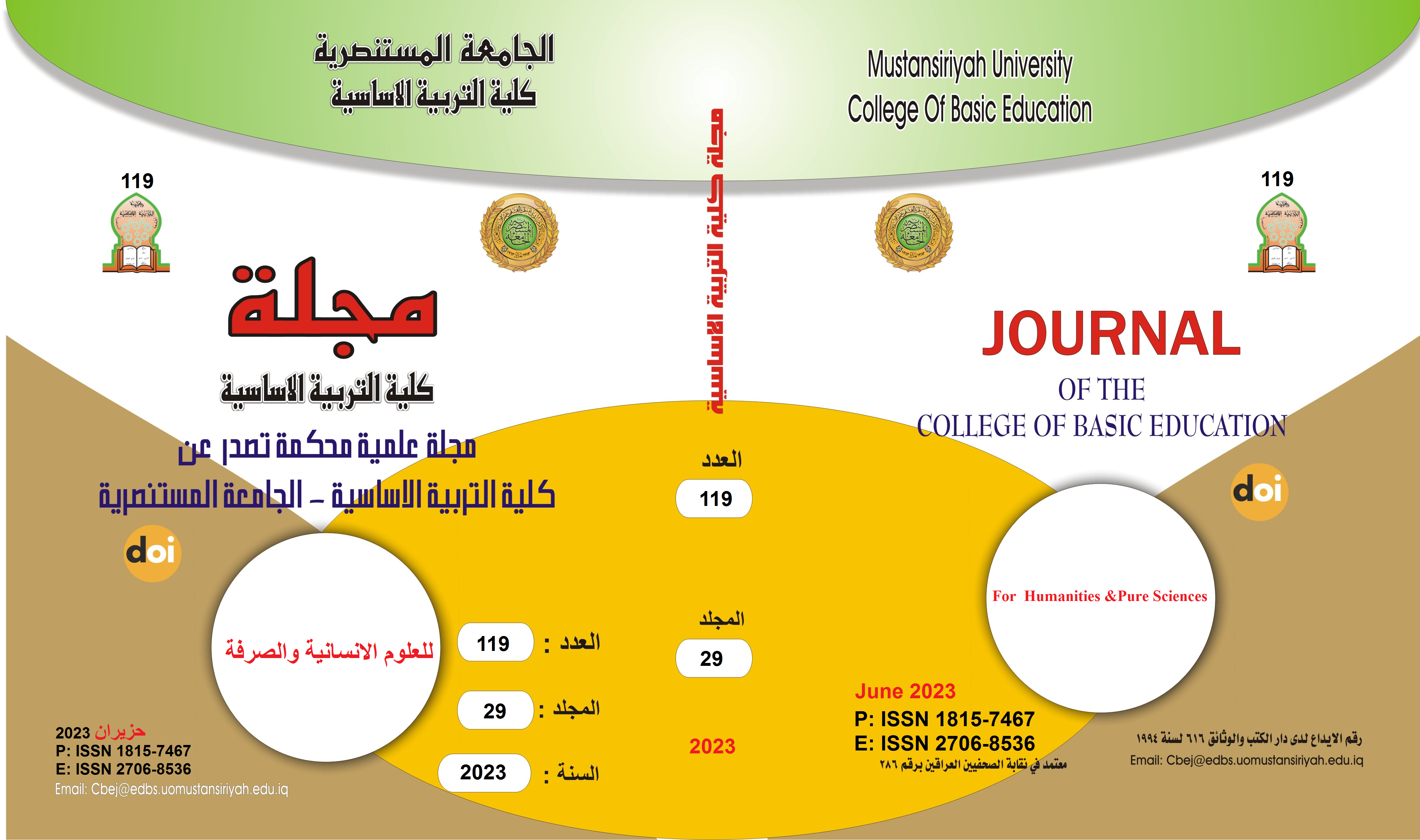THE SYNTACTIC BEHAVIOR OF –LYADVERBS AND –LY ADJECTIVES
Main Article Content
Abstract
This paper is an attempt to demonstrate the syntactic behavior of -ly adverbs and -ly adjectives. It mainly deals with -ly as an inflectional suffix that forms adverbs and adjectives It is hypothesized that there are differences between adjective-forming –ly and adverb-forming –ly.The researcher first made general and specific observations about the morphological processes of -ly adverbs and -ly adjectives. Since the study focuses on a linguistic phenomenon, its data is a set of -ly adverbs and -ly adjectives used as examples to support the hypothesis. The importance of studying the syntactic behavior of -ly stems from the fact that thousands of English adjectives and adverbs are created by adding the suffix "-ly" to their roots. Despite the fact that both adjective-forming –ly and adverb-forming –ly bring about new words and they occur at the end of the word’s root, there are still striking differences related to the occurrence and morphological derivation.
In conclusion, adjectives and adverbs that are made by adding adjective- and adverb-forming –ly to bases called "nouns or adjectives" are plentiful in English. Words known as de-nominal adjectives, de-adjectival adverbs, and de-adjectival adjectives are the products of this morphological process.
Article Details

This work is licensed under a Creative Commons Attribution-ShareAlike 4.0 International License.
